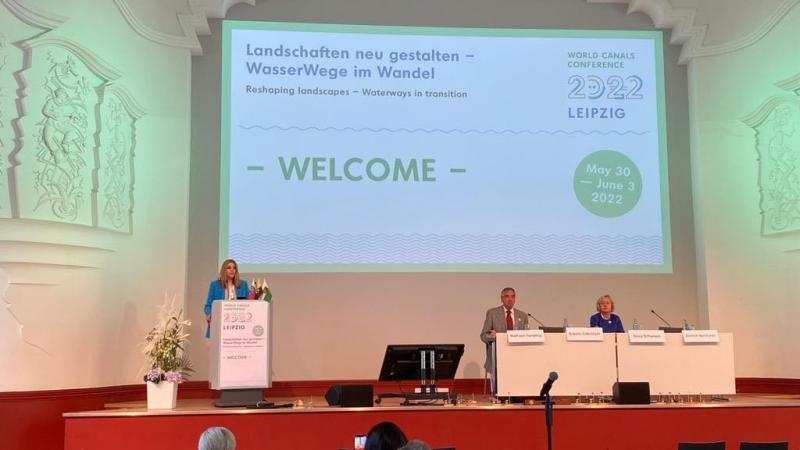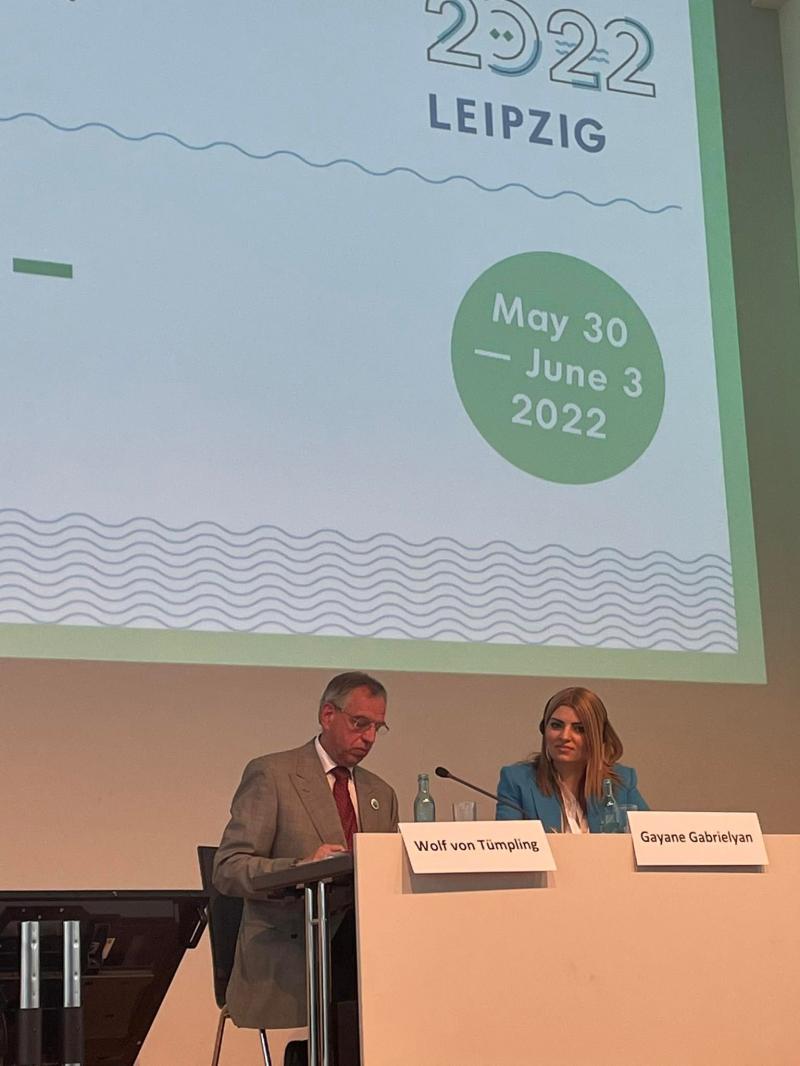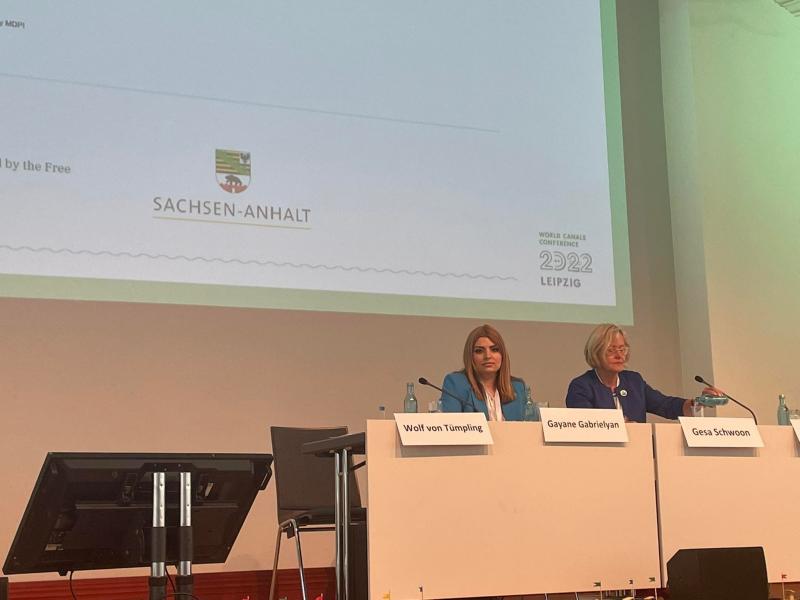Deputy Minister of Environment Gayane Gabrielyan spoke at the International Canal Forum in Leipzig.
The Deputy Minister made an introductory speech at the forum.
Welcoming those present and colleagues, Gayane Gabrielyan thanked for the invitation to participate.
The Deputy Minister once again stated that water is the main resource around which societies, states and civilizations have formed and developed. Water has been and remains the basis of economic development, quality of life and human health, stable development of countries, diplomacy and other very important spheres.
Gayane Gabrielyan in her speech touched upon the importance and importance of the international channel forum.
This conference is an international platform for water-related issues, and it brought together qualified world experts and key players in the water sector. Armenia participates in this forum within the framework of the memorandum of understanding and cooperation in the field of nature protection, waste management and sanitation, signed last autumn between the cities of Leipzig and Yerevan.
The Deputy Minister touched upon the reforms of the water sector in Armenia over the past decade and the tangible progress recorded.
"I am glad that I had the opportunity to express my concerns about the global challenges to water security that the world is currently facing, and to indicate those areas that can help overcome these challenges," the Deputy Minister said.
The World Economic Forum has named water crises as the number one key issue in its assessment of global risks for 2015. Although global climate change is the main cause of water scarcity, we still often ignore its importance when developing strategic policies of governments.
Quoting the world risk assessment data of the World Resources Institute for 2015, the Deputy Minister presented that 17 countries of the world are at an extremely high level of water scarcity, and it is predicted that this number will increase.
"It is expected that global climate change will have immediate consequences for water security, therefore, the continuation of such an approach is unacceptable from now on," the Deputy Minister added, "there is an urgent need for consolidation of efforts and effective cooperation, including using the opportunity provided by this conference to create links around the world aimed at countering the challenges that exist through effective management of water resources and creation of ecosystems.
This can be done, in particular, through climate change adaptation actions to try to achieve the Sustainable Development Goals (SDGs)."
The Deputy Minister highlighted the important steps that need to be taken in this context.
Classify integrated water resources management in the climate change adaptation planning and investment center,
Promote investments that include the management, restoration and sustainability of "natural (green) infrastructure" based on technological and digital progress,
Support activities on a scale that will combine watershed management, sustainable infrastructure, as well as reinforcement and training through adaptation mechanisms.
Thus, the adoption of the UN Agenda for 2030 (2015) provided an important additional framework in which integrated water resources management and adaptation to climate change are considered as components of global efforts for sustainable development, in particular, considering them as Sustainable Development Goals: 6 (provides access to water and sanitary drainage and sustainable governance for all) and 13 (taking urgent measures to combat climate change and its consequences):
Summing up his speech, the Deputy Minister expressed hope that the international conference of canals will become a platform where all thoughts and ideas, "water thinking" will unite to overcome the challenge facing our fragile planet.







